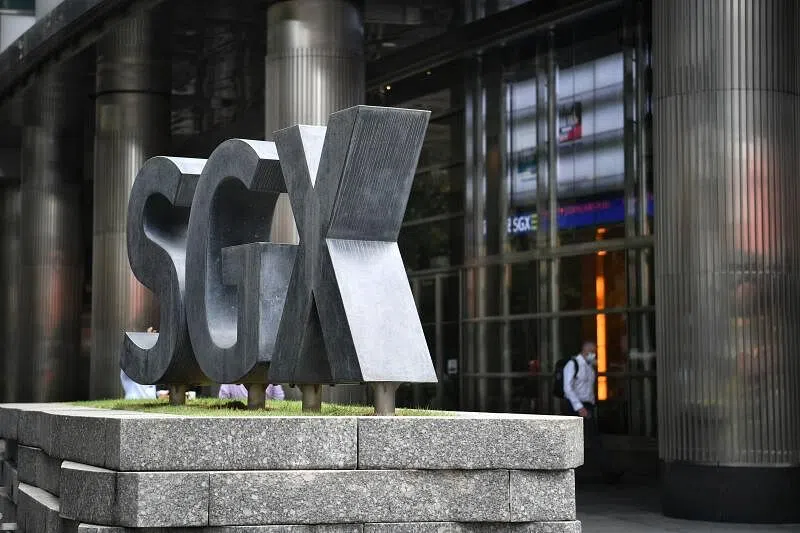MARKET watchers said market integrity, investor protections and minority shareholders could be affected by the Monetary Authority of Singapore’s (MAS) equities market review group’s recommendation to shift towards a more disclosure-based regime, among other regulatory measures revealed on Feb 21.
David Smith, senior investment director at asset manager abrdn, said that the success of this approach depends on the active participation of the investment community, including both buy and sell-side investors, as well as other key stakeholders involved in bringing companies to the market.
In this context, he views the industry-led Singapore Stewardship Principles, introduced in 2016, as a valuable reference. They encourage responsible investment and promote good stewardship practices on a voluntary basis.
Effective stewardship can help to “create and preserve enterprise value within portfolio companies, and improve long-term risk-adjusted returns for clients and beneficiaries”, noted Smith, who also serves as a member of the review group’s regulatory workstream and the MAS Corporate Governance Advisory Committee.
The review group’s regulatory workstream is focused on improving the current disclosure-based regime while strengthening corporate governance, investor access and recourse.
Being an “effective disclosure-based regime”
The Singapore Exchange’s (SGX) Code of Corporate Governance outlines expectations on disclosures for listed companies.
BT in your inbox
Start and end each day with the latest news stories and analyses delivered straight to your inbox.
Market experts, however, note that retail investors currently have limited recourse under the legal framework, should companies fail to disclose certain information and things go south.
This reinforces the need for SGX to enforce market discipline, said TSMP Law joint managing partner Stefanie Yuen Thio.
Lee Ooi Keong, managing director at Clover Point Consultants, noted that Singapore’s investor protections fall short compared with the UK and US, where minority shareholders have legal recourse for false disclosures.
He pointed to the separate roles of the London Stock Exchange and the UK Financial Conduct Authority as a model, emphasising the importance of meaningful disclosures and robust investor protections.
In contrast, he noted that Singapore Exchange Regulation (SGX RegCo) is an independent subsidiary of SGX, and is now proposing “an even lighter touch and more market friendly regulatory regime”.
In Asia, Professor Lawrence Loh, director at the Centre for Governance and Sustainability at NUS Business School, observed that most jurisdictions, including Hong Kong and Malaysia, are primarily disclosure-based, in line with their respective governance codes and regulations.
Noting that there are considerations for these jurisdictions to move to be fully disclosure-based for all aspects of market operations, he emphasised the importance of ensuring that investors have the necessary information to make good decisions.
“An effective disclosure-based system may be sufficient to ensure this,” he said.
While Yuen Thio supports a disclosure-based regime in Singapore, she highlighted the need for legal reforms to improve shareholder communication, address management concerns and enable class action lawsuits.
She also called for stronger enforcement levers for SGX RegCo to “be beefed up to provide significant and punitive disincentives to offending conduct”.
Smith affirmed that Singapore’s regulatory regime has “very solid foundations”, but needs to continue evolving.
He noted that the review group said that it will continue to study the necessary and complementary measures for an effective disclosure-based regime.
However, the users of disclosure, such as the investment community, have a major role to play by stepping up their scrutiny and engagement of companies, and by holding them accountable.
“A vibrant equities market needs informed and engaged investors, and so it’s crucial that investors play their role,” said Smith.
Removing the financial “watch-list”
A key regulatory measure from the review group involves adopting a more targeted approach to post-listing queries, alerts and trading suspensions. Its aim is to balance market discipline with investor protection, as public queries and alerts can unintentionally disrupt share trading.
However, market experts such as Robson Lee, partner at Kennedys Law, have voiced concerns. He said that “investors should be given the ultimate right to make trading decisions without molly-coddling by the market regulators”.
As part of the measures, SGX RegCo plans to consult on removing the financial “watch-list” and moving away from regulatory surveillance where market discipline can be relied upon.
Clover Point’s Lee Ooi Keong cautioned that removing the watch list could allow struggling companies to “stay hidden under the radar for much longer”.
However, Loh pointed out that while watch lists highlight a company’s financial health, they may not always signal poor governance. He suggested that it was “timely to review the watch list’s criteria or even necessity to better facilitate the role of market adaptability while continuing with essential market safeguards”.
Kennedy’s Robson Lee instead proposed that the market regulator establish clear criteria for compulsorily delisting non-performing mainboard-listed companies, rather than keeping such companies listed on a “life-support machine”.
Companies facing solvency issues or serious legal problems should be suspended and eventually delisted, he added.
Regardless of the outcome of the consultation on the watch list, Smith believes “it is important that the market plays its role in engaging with and monitoring companies that might otherwise be placed on a watch list, alongside whatever regulatory shape is landed on”.



